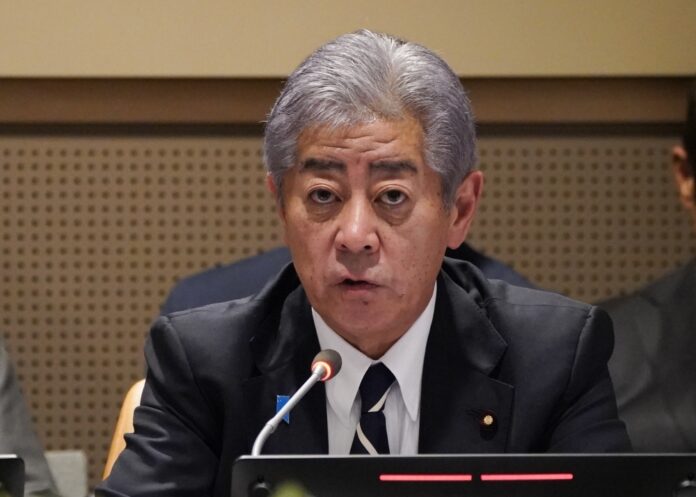Japan’s Foreign Minister Iwaya Takeshi underscored the critical importance of upholding international maritime law during the Foreign Ministers’ Meeting titled “Reinforcing Maritime Cooperation to Achieve a Secure and Stable Maritime Domain”, held in New York on September 24. The meeting, hosted by the Philippines and co-organized with Japan and other like-minded nations, gathered foreign ministers from across the globe to discuss growing maritime challenges and the need for coordinated international responses.
Speaking during the 70-minute session that began at 3:00 p.m. local time (4:00 a.m. JST on September 25), Minister Iwaya emphasized that maintaining maritime order depends fundamentally on compliance with international law—especially the United Nations Convention on the Law of the Sea (UNCLOS). The 1982 Convention, he noted, provides the universally accepted legal framework governing maritime activities and the peaceful use of the seas.
“Japan will continue to work closely with the international community to uphold a maritime order based on the rule of law,” Minister Iwaya said, reaffirming Japan’s commitment to promoting regional stability, freedom of navigation, and the peaceful resolution of disputes.
The meeting reflects growing global concern over rising tensions in key maritime regions, and the policy significance lies in reinforcing multilateral efforts to ensure security, stability, and legal predictability on the high seas. Such forums are increasingly seen as essential for deterring unilateral actions that could undermine regional and global maritime governance.
Participants reaffirmed the necessity of international cooperation to counter threats to maritime stability, including illegal maritime claims, militarization of disputed areas, and disruptions to maritime trade routes. The session also highlighted the importance of capacity-building and collaboration among coastal states to enforce maritime law effectively.
This gathering forms part of a broader diplomatic push to fortify the international rules-based order at sea amid rising geopolitical competition and contested maritime claims, particularly in the Indo-Pacific region.







